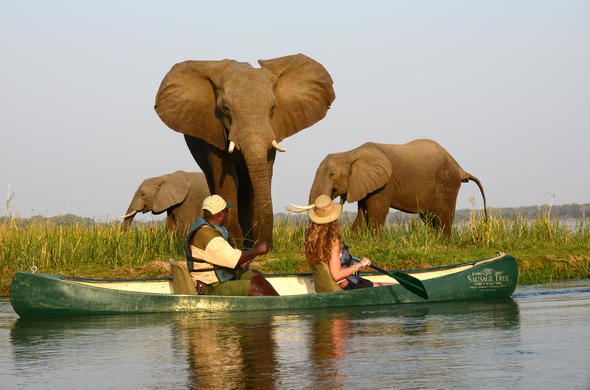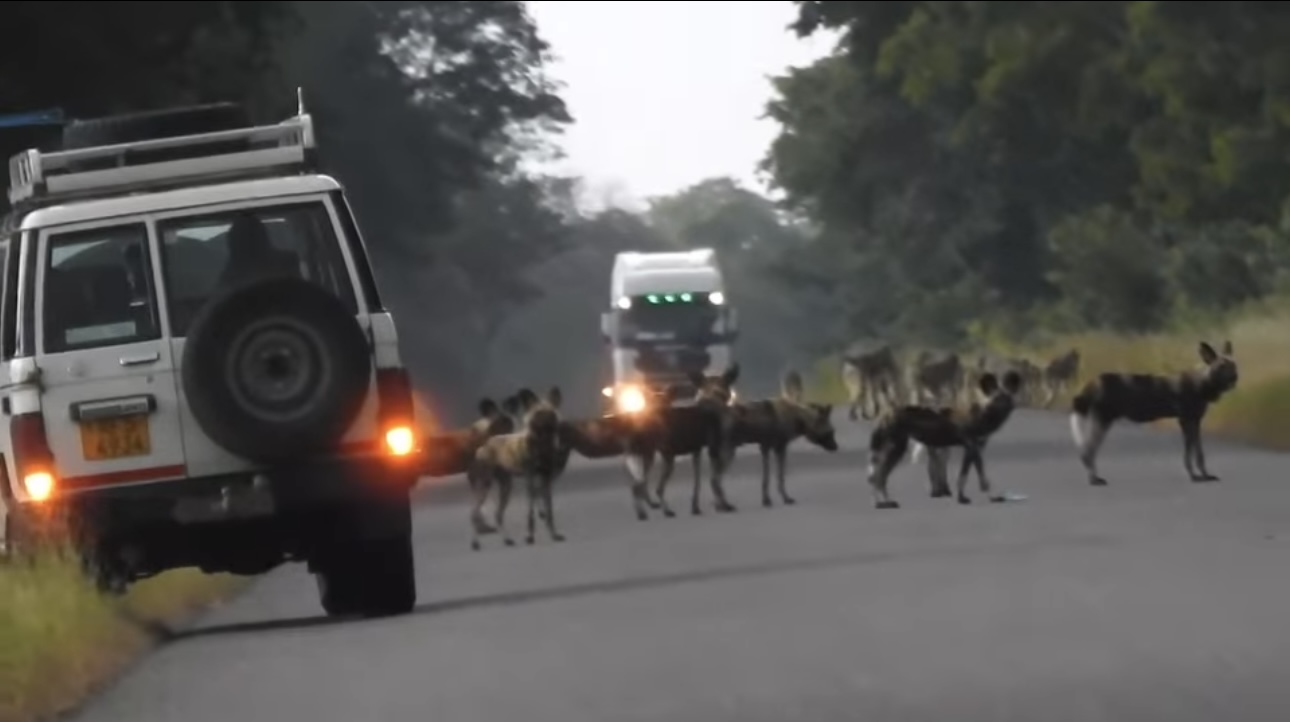BY TICHAONA CHIFAMBA
Zimbabwe’s elephants are slowly becoming a danger unto themselves as they continue to destroy their own habitat as well as that of other wild animals, a wildlife official has said.
Zimbabwe Parks and Wildlife Management Authority (Zimparks) spokesperson Tinashe Farawo said the situation was becoming untenable in areas such as Hwange in western Zimbabwe where huge swathes of vegetation were being lost to the growing elephant population.
Zimbabwe’s elephant population is estimated to be more than 100 000, more than double its ecological carrying capacity of about 45 000, according to conservationists.
It boasts of about a quarter of the continent’s elephant population and the second-highest in the world after Botswana.
This is due to the country’s robust conservation measures which have protected the critically endangered species.
But such measures are now literally coming back to haunt the authorities as the habitats can no longer sustain the growing numbers.
“The elephants are slowly becoming a danger unto themselves. They are destroying their habitat and that of other animals. Go to Hwange National Park and you will think that someone has been deliberately razing down the trees,” he told Xinhua.
Environment, Climate, Tourism and Hospitality minister Mangaliso Ndlovu said in May 2021 that the government was considering culling the elephants to save the habitat.
However, some international conservationists have frowned upon the idea.
Farawo said these conservationists should leave their offices abroad and come to Zimbabwe to see what is prevailing on the ground.
To sustain its conservation efforts, Zimbabwe also wants to raise funds through the sale of ivory, but the conservationists fear that this will open floodgates for poaching.
“We’re battling an ever-increasing population of animals. They can come and see for themselves how our people are coping. We must be allowed to benefit from our resources. These are the issues we have to deal with,” he said.
The country last culled elephants in 1988 and continues to have stockpiles of ivory which it cannot sell because of restrictions from the Convention on International Trade in Endangers Species (CITES).
President Emmerson Mnangagwa in 2019 implored CITES to allow it to sell its $600-million worth ivory stockpile, but the plea fell on deaf ears, prompting the country to consider pulling out of the convention.
Another option to deal with over-population would be to translocate some of the elephants from densely populated parks to those which can sustain higher populations.
However, the exercise is costly and given that there are other conflicting social needs in society, funding for such an exercise would be difficult to find, Farawo said.
“The last time we carried out such a translocation of 100 elephants it cost us about half a million US dollars,” he said.
Apart from the destruction of habitat, elephants are also leading in incidences of human and wildlife conflict.
Farawo said almost 60 people had died from such conflicts since the beginning of 2021, with elephants and crocodiles accounting for more than 90 percent of the cases.
He warned that the situation could get worst at this time of the year because the elephants would move out of their natural habitat in search of water and food.
“We are at the peak of the dry season and elephants stray into nearby communities. Interaction with them in such cases can be fatal,” he said. –Xinhua

 Slider3 years ago
Slider3 years ago
 National4 years ago
National4 years ago
 Tourism and Environment4 years ago
Tourism and Environment4 years ago
 Special reports4 years ago
Special reports4 years ago
 Opinion4 years ago
Opinion4 years ago
 National4 years ago
National4 years ago
 National3 years ago
National3 years ago
 National3 years ago
National3 years ago




